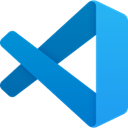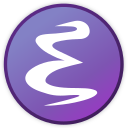Unlocking Your Ideal Text Editor: Top gedit Alternatives
Gedit, the official text editor of the GNOME desktop environment, has long been a staple for many developers and casual users alike. With its robust syntax highlighting, support for various programming languages, and extensibility through plugins, it’s a capable tool for everyday coding and text manipulation. However, the world of text editors is vast and diverse, and what works for one user might not be ideal for another. If you're looking to explore new horizons, seeking more specialized features, or simply curious about what else is out there, this guide to gedit alternatives is for you.
Top gedit Alternatives
Whether you're a seasoned developer or a casual user, finding the right text editor can significantly enhance your workflow. Here's a curated list of top gedit alternatives that offer unique features and cater to diverse preferences, from lightweight and fast to feature-rich IDE-like experiences.

Notepad++
Notepad++ is a free, open-source text editor primarily for Windows, serving as an excellent Notepad replacement and a powerful gedit alternative. It’s highly praised for being lightweight and supporting numerous languages with features like syntax highlighting, code formatting, and a convenient tabbed interface. Its extensibility with plugins and support for JavaScript, macros, and regular expressions make it a versatile tool for developers.

Visual Studio Code
Visual Studio Code (VS Code) is a free, open-source editor available across Mac, Windows, and Linux, making it a compelling gedit alternative for cross-platform users. It balances a streamlined UI with rich code assistance, including IntelliSense and autocompletion, and an integrated debugging experience. Its extensive ecosystem of plugins allows for C++, C#, Python, and JavaScript support, GIT integration, and a built-in terminal, making it a powerful choice for modern development.

Atom
Atom is a free, open-source, and highly extensible cross-platform text editor (Mac, Windows, Linux) developed by GitHub. As a “hackable” editor, it’s a fantastic gedit alternative for those who love customization, offering a rich ecosystem of plugins and themes. Key features include syntax highlighting, autocompletion, Git and GitHub integration, and real-time collaborative editing with Teletype, making it ideal for team-based projects.

Sublime Text
Sublime Text is a commercial, yet highly popular, sophisticated text editor available for Mac, Windows, and Linux. It’s known for its slick user interface, extraordinary features, and lightweight performance, making it a strong gedit alternative for users seeking efficiency. Its standout features include multiple cursors for simultaneous editing, powerful package control for extensions, customizable settings, and distraction-free UI, making it perfect for focused coding and prose editing.

Vim
Vim (“Vi IMproved”) is a free, open-source, and highly advanced text editor available across Mac, Windows, Linux, and BSD. It's a powerful gedit alternative for users who prefer a keyboard-focused workflow and deep customizability. With extensive plugin support, syntax highlighting, and a huge amount of contributed content, Vim is often favored by power users and developers who appreciate its modal editing and terminal-based efficiency.

Brackets
Brackets is a free, open-source editor for web design and development, built on web technologies like HTML, CSS, and JavaScript, available for Mac, Windows, and Linux. It serves as an excellent gedit alternative specifically for front-end developers, offering unique features like Live Preview, which updates your browser as you type code, and an integrated FTP client. Its extensibility through plugins and streamlined interface make it a go-to for web projects.

Geany
Geany is a free, open-source, lightweight Integrated Development Environment (IDE) available across Mac, Windows, and Linux. As a gedit alternative, it's designed to be fast and have minimal dependencies, yet it provides robust IDE features like automatic indentation, a built-in terminal, code navigation, and excellent syntax highlighting. It’s ideal for users who need a powerful but not resource-intensive coding environment.

GNU nano
GNU nano is a free, open-source, small, and user-friendly text editor primarily used via the command line on Mac, Windows, Linux, and BSD. For those who frequently work in the terminal, nano is a direct gedit alternative for quick edits and basic text manipulation. It offers features like interactive search and replace, go to line and column, and automatic indentation, making it a reliable choice for server administration and scripting.

GNU Emacs
GNU Emacs is a free, open-source, and highly extensible text editor and much more, available across Mac, Windows, Linux, and BSD. Often considered a full IDE due to its vast capabilities, Emacs is a powerful gedit alternative for users who want deep customization and extensibility through its Lisp interpreter. Features include editable text color schemes, syntax highlighting, package control, and robust scripting capabilities, catering to a wide range of programming tasks.

Kate
Kate is a free, open-source text editor, primarily known as part of the KDE desktop environment but also available for Mac, Windows, and Linux. As a gedit alternative, Kate offers a rich set of features, including built-in terminal, advanced syntax highlighting, code formatting, and robust file management. It’s a great option for users who appreciate native application performance and a tabbed interface with customizable themes, making it suitable for both coding and general text editing.
Exploring these gedit alternatives can open up new possibilities for your coding and text editing workflows. Each offers a unique blend of features, performance, and customization options. We encourage you to try out a few and discover which one best aligns with your specific needs and preferences, enhancing your productivity and overall experience.